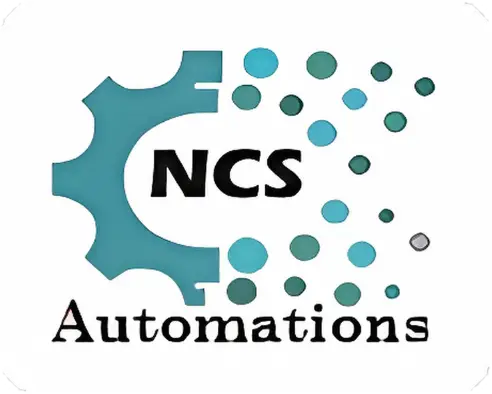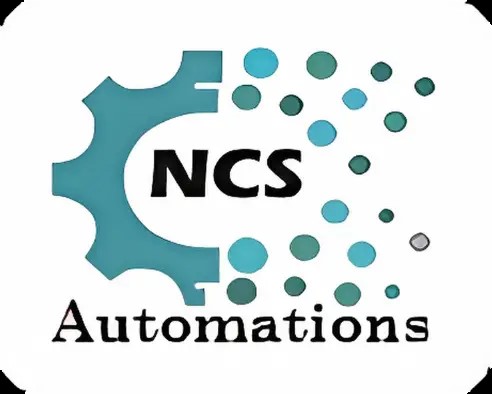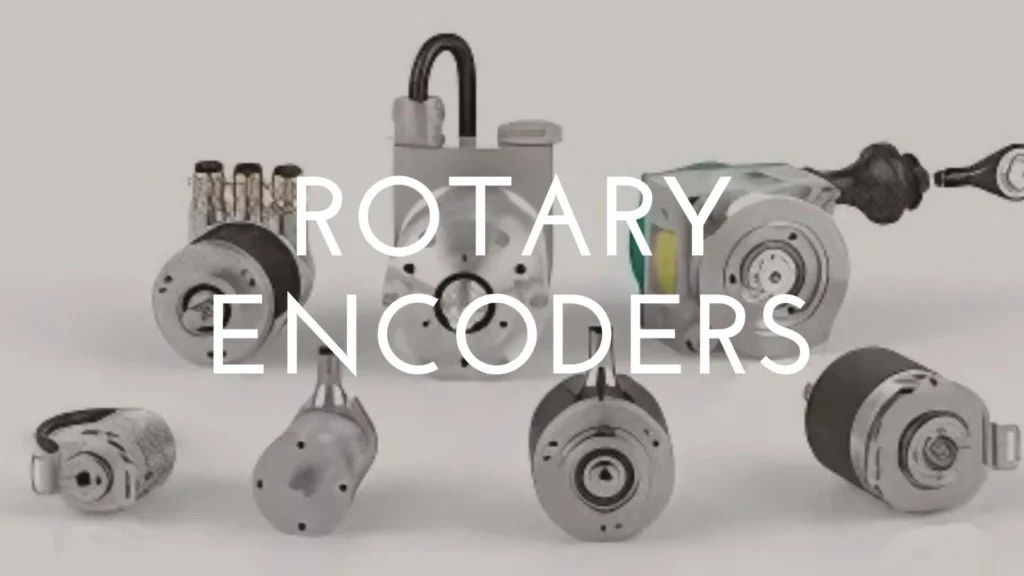Introduction
In the rapidly evolving landscape of industrial automation, achieving precise control over motion is paramount. Central to this precision is the rotary encoder, a device that translates mechanical motion into digital signals, enabling accurate monitoring and control of position, speed, and direction.
At NCS Automations, we specialize in providing high-quality rotary encoders that serve as the backbone for various automated systems. This comprehensive guide delves into the intricacies of rotary encoders, their types, applications, and the advantages they offer in modern automation.
What is a Rotary Encoder?
A rotary encoder is an electromechanical device that converts the angular position or motion of a shaft into an analog or digital signal. These signals are crucial for determining parameters such as:
- Position: Identifying the exact location of a component.
- Speed: Measuring how fast a component is moving.
- Direction: Determining the rotational direction of a component.
By providing real-time feedback, rotary encoders enable systems to perform with high precision and reliability.
Types of Rotary Encoders
Rotary encoders are broadly categorized into two main types: Incremental and Absolute. Each type has distinct characteristics and is suited for specific applications.
1. Incremental Encoders
Incremental encoders generate pulses as the shaft rotates, with each pulse representing a specific increment of movement. These encoders are ideal for applications requiring:
- Speed Measurement: Monitoring the rate of rotation.
- Direction Detection: Determining the rotational direction.
- Relative Positioning: Tracking movement from a known reference point.
Advantages:
- High Resolution: Capable of detecting minute movements.
- Cost-Effective: Generally more affordable than absolute encoders.
- Simple Integration: Easier to implement in existing systems.
Considerations:
- Power Loss: Position data is lost if power is interrupted, requiring a system reset.
2. Absolute Encoders
Absolute encoders provide a unique code for each shaft position, ensuring that the exact position is known even after power loss. They are essential for applications where:
- Precise Positioning: Exact location data is critical.
- Power Interruptions: Systems must resume operation without reinitialization.
- Complex Movements: Multi-axis or intricate motion control is required.
Advantages:
- Non-Volatile Positioning: Retains position data without power.
- Enhanced Reliability: Reduces the need for system resets.
- Versatility: Suitable for complex automation tasks.
Considerations:
- Cost: Typically more expensive than incremental encoders.
Applications of Rotary Encoders in Automation
Rotary encoders are integral to various industries, enhancing the performance and reliability of automated systems.
1. Manufacturing and Packaging
In manufacturing lines, rotary encoders monitor and control conveyor speeds, ensuring synchronized operations. In packaging, they guarantee precise placement and alignment of products.
2. Robotics
Robotic systems rely on rotary encoders for joint positioning, enabling accurate and repeatable movements essential for tasks like assembly, welding, and painting.
3. CNC Machinery
Computer Numerical Control (CNC) machines use rotary encoders to control spindle speeds and tool positions, ensuring high-precision machining.
4. Elevators and Lifts
Rotary encoders provide feedback on the position and speed of elevator cars, contributing to smooth and safe vertical transportation.
5. Printing Industry
In printing presses, encoders synchronize paper feed and print head movements, resulting in high-quality, consistent prints.
Why Choose NCS Automations for Rotary Encoders?
At NCS Automations, we are committed to delivering rotary encoders that meet the highest standards of quality and performance.
1. Precision Engineering
Our encoders are designed with cutting-edge technology to provide accurate and reliable feedback, essential for complex automation tasks.
2. Robust Construction
Built to withstand harsh industrial environments, our encoders feature durable housings and components that resist dust, moisture, and vibrations.
3. Custom Solutions
We offer tailored encoder solutions to meet specific application requirements, ensuring optimal integration and performance.
4. Expert Support
Our team of experienced engineers provides comprehensive support, from product selection to post-installation assistance.
Technical Specifications
When selecting a rotary encoder, consider the following specifications to ensure compatibility with your system:
- Resolution: Determines the encoder’s ability to detect small movements. Higher resolutions offer greater precision.
- Output Type: Options include TTL, HTL, and open collector, depending on system requirements.
- Shaft Type: Choose between solid, hollow, or blind hollow shafts based on mechanical setup.
- Protection Rating: IP ratings indicate the encoder’s resistance to dust and moisture.
- Operating Temperature: Ensure the encoder can operate within the temperature range of your application.
Conclusion
Rotary encoders are indispensable components in the realm of automation, offering precise control over motion and positioning. Whether you’re enhancing an existing system or developing a new application, choosing the right encoder is crucial for success.
At NCS Automations, we provide a comprehensive range of rotary encoders designed to meet the diverse needs of modern industries. Our commitment to quality, customization, and customer support ensures that you receive the optimal solution for your automation challenges.
Frequently Asked Questions (FAQs)
Q1: Can rotary encoders be used in outdoor applications?
A1: Yes, with appropriate IP-rated enclosures, rotary encoders can function reliably in outdoor environments.
Q2: How do I choose between an incremental and an absolute encoder?
A2: Consider factors like the need for position retention after power loss (absolute) versus cost and simplicity (incremental).
Q3: What maintenance is required for rotary encoders?
A3: Regular inspections for physical damage and ensuring clean, secure connections help maintain optimal performance.
Q4: Are rotary encoders compatible with all PLCs?
A4: Most rotary encoders are compatible with standard PLCs, but always verify signal compatibility and voltage levels.
Q5: Can NCS Automations provide custom encoder solutions?
A5: Absolutely. We specialize in developing customized encoder solutions to meet unique application needs.




